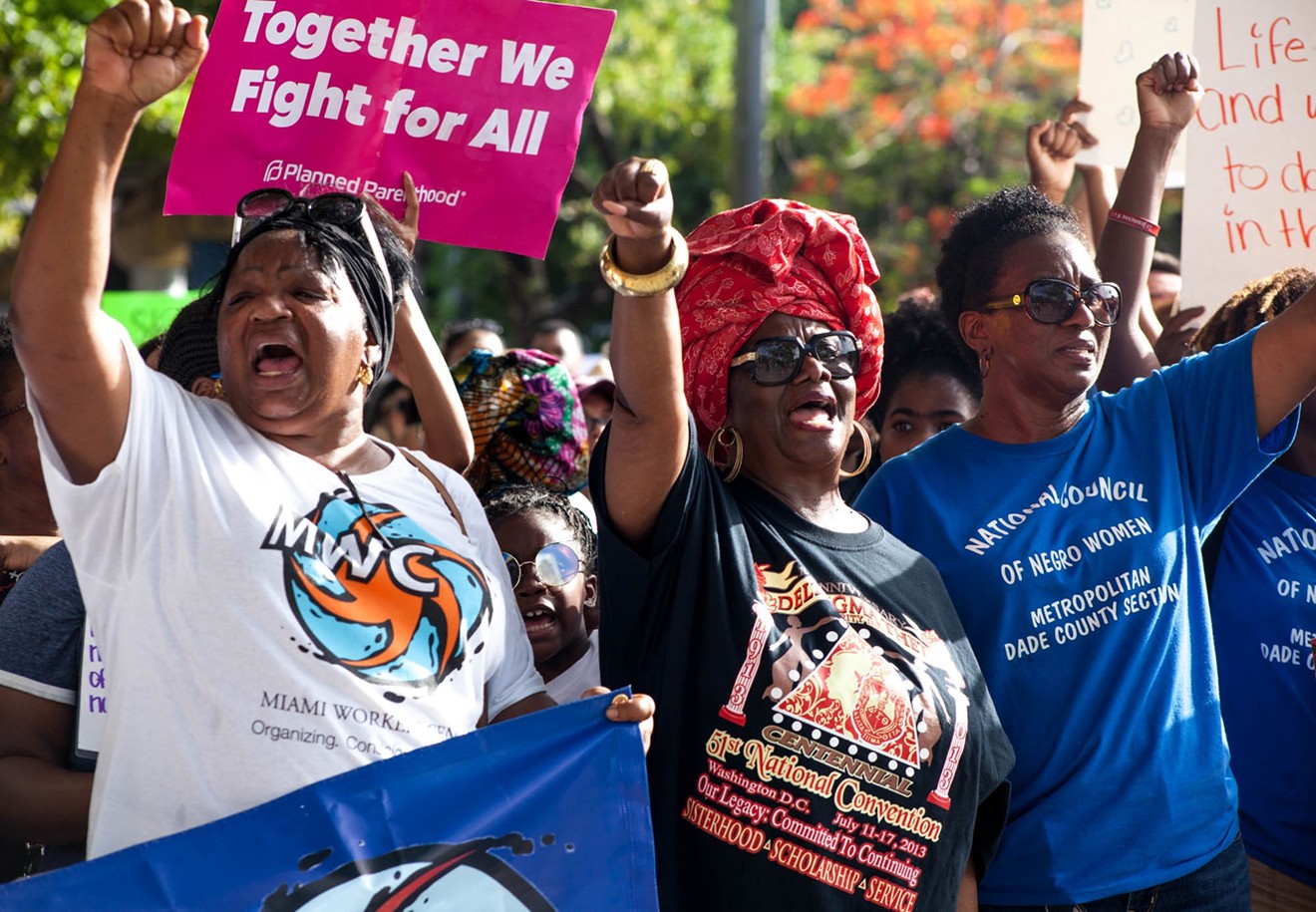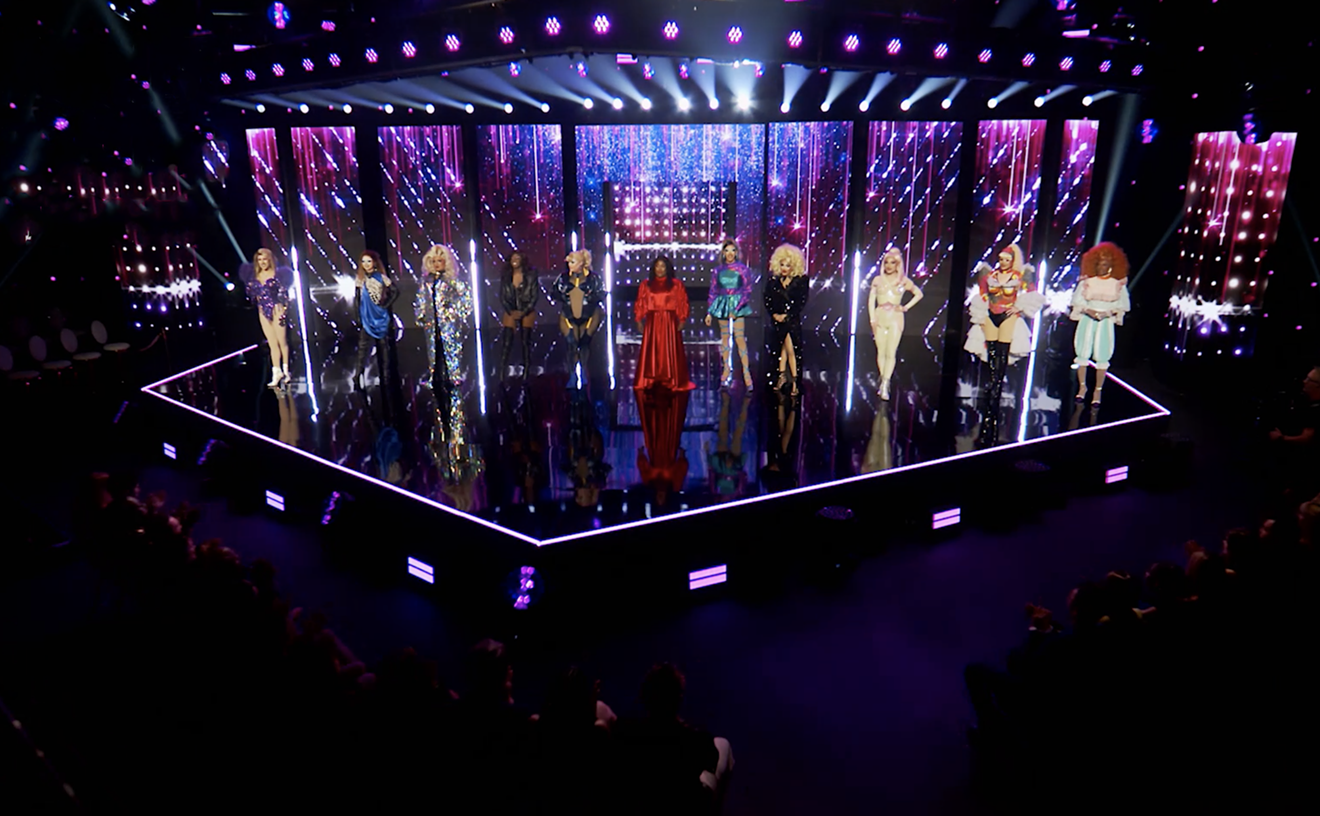I'm in grad school in a critical theory class. My professor — Patrick, a bald, white, intellectual man — looks poised for something. He wants to start a discussion about an excerpt we read, and he seems to be treading carefully. We — six or seven white students at a prestigious art school in Chicago — listen intently.
Then he uses this example: "It's like a kid on the West Side of Chicago can say the N-word, and because it's to a friend, it's a term of endearment."
People in the room seem to understand what he's getting at. A discussion begins, the kind you feel the people in the room have been wanting to have. Then, a performance art major, a student who seems to get off on being edgy and controversial, says the word "nigger," and something changes in the room. The adults aren't around, and there's a bag of forbidden candy open on the table. Somewhere during the discussion about the difference between an "-er" and an "-a" ending, my professor says, "Taylor, just get it out." My face must have been bright red.
I don't remember exactly what I said, maybe because I felt hot from trying to find a way to communicate the vague horror I was feeling. I think I said something like, "You can't separate that word from hundreds of years of violence and oppression."
I don't remember what the professor said in reply, just that it confused me and didn't make the sick in my stomach go away. I must have spent a week venting to friends about it, mostly because I needed someone to share my outrage at a classroom full of white students casually discussing the use of racial slurs. Most of them agreed it was messed up, out of touch, and ridiculous, but I was shocked to find that none of them was as shocked as I was. Sharon, a friend in the writing program and a black woman from Cleveland, Ohio, even laughed. For the record, I never saw her get upset. But she would go on to take that same professor as an adviser, to my incredulity.
But this isn't about Sharon's response to racism. It's about my naiveté, a blind spot I really should have caught on to by now. After I left Miami and lived in two other American cities, the ubiquity of unquestioned, unexamined whiteness was a shock. Some things weren't completely lost on me. My ex, a mixed-race man raised predominantly by the white, Mexican side of his family, would stare at me, confused, maybe a little intimidated, when I would try to explain the intersections of feminism and racism. A Korean friend from New York, Susan, visibly checked out in the middle of my arguing that the racist comment a girl made about Susan's eyes probably wasn't intentionally racist.
But I really should have seen it last week, when I was on the phone with Jasmen Rogers, gender justice coordinator at the Miami Workers Center and one of the organizers of the Florida March for Black Women, which took place this past Saturday. I spoke with her about the uncomfortable awareness of writing about a march for black women in a publication by white people and expressed my dissatisfaction with the well-meaning white women in my life.
Rogers sighed deeply and said, "It's a lot."
She wasn't exactly commiserating, although her tone was far from diminutive or dismissive. She sounded a bit like she was sympathizing with a child, because to be a white person in the United States is to be a child.
That's not just because privilege shields and protects white people's ignorance, and not just because whites are less likely to experience police brutality, profiling, incarceration, domestic abuse, poverty, eviction, and premature death. One of the first things Rogers said to me was: "I'm convinced that white people don't know how to not take up space." Think of a spoiled kid, one who orders a waitress around or tries to blackmail a teacher for a gold star. What do they do but demand to take up space that isn't theirs?
I felt like a child walking to the march Saturday. I got lost following Google Maps the two blocks from Culmer Station to Booker T. Washington Senior High School. I was irrationally anxious that I would be exposed as a fraud in some way. I was eager to fulfill my duties as a writer for New Times in an attempt to seem like I wasn't just there taking up space. How many times had I been an unattended child in a classroom or conference room, and wouldn't I have to account for that now? What is certain is that our caretakers, the women who have historically raised us, fed us, and built the bedrock of our society, are goddamn tired of following us around, cleaning up our mess.
I was privileged Saturday to witness the beauty and energy of young black girls on megaphones claiming their power and dancing to their chants. I was privileged to watch black women and femmes tell their stories because they want black trans folks, black immigrants, and black workers who can't afford their rent to know that their lives matter. When white people live like children, black women are not treated like human beings. When children are in charge, they fuck up the house and one another on some Lord of the Flies shit and are liable to take orders from the lead character of their favorite TV show.
To be an ally, Rogers told me, is to fuck up constantly and then try to do better — to take your first steps toward adulthood, stumbling all the way.
But you have to do it yourself. Call the Miami Workers Center and attend a Femme Agenda meeting. Lend support to Soul Sisters or Pridelines. Simply Google "how to dismantle white supremacist patriarchy." A Black Women's Assembly is being planned for June 2018, but don't wait until then. For the black people I love and for the black girls I teach, I know I have to. It's long overdue that white people grow up.
Yonasda Lonewolf, an Oglala Lakota black female activist and organizer, opened the march with a statement and song, although it's clear to her that we have to go beyond that. For those trying to be better allies, she advises, "Get out of your comfort zone. That means going into a community that you've never been to before, sitting and listening. We talk too much, as people. We need to sit and listen and hear what other people's stories are. It's kind of like the old 'get to know your neighbor.' We have to get back to that. Social media is our new neighbor and who we talk to. We have to get to our neighbor right next door, down the block in Little Haiti, Little Havana. Get uncomfortable."
Jasmen Rogers asks, "Who are you accountable to? How do those people look, believe, love in ways differently than you do? You need to look at what you think about the world, and if where you get those beliefs doesn't look, believe, love differently than you do... then you need to change them. Go to different places and listen. Just listen. Listen to the stories and trust the leadership."
[
{
"name": "Air - MediumRectangle - Inline Content - Mobile Display Size",
"component": "19274298",
"insertPoint": "2",
"requiredCountToDisplay": "2"
},{
"name": "Editor Picks",
"component": "17482312",
"insertPoint": "4",
"requiredCountToDisplay": "1"
},{
"name": "Inline Links",
"component": "18711090",
"insertPoint": "8th",
"startingPoint": 8,
"requiredCountToDisplay": "7",
"maxInsertions": 25
},{
"name": "Air - MediumRectangle - Combo - Inline Content",
"component": "17482310",
"insertPoint": "8th",
"startingPoint": 8,
"requiredCountToDisplay": "7",
"maxInsertions": 25
},{
"name": "Inline Links",
"component": "18711090",
"insertPoint": "8th",
"startingPoint": 12,
"requiredCountToDisplay": "11",
"maxInsertions": 25
},{
"name": "Air - Leaderboard Tower - Combo - Inline Content",
"component": "17482313",
"insertPoint": "8th",
"startingPoint": 12,
"requiredCountToDisplay": "11",
"maxInsertions": 25
}
]














